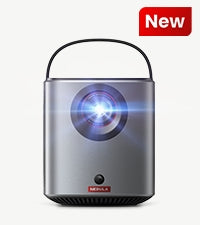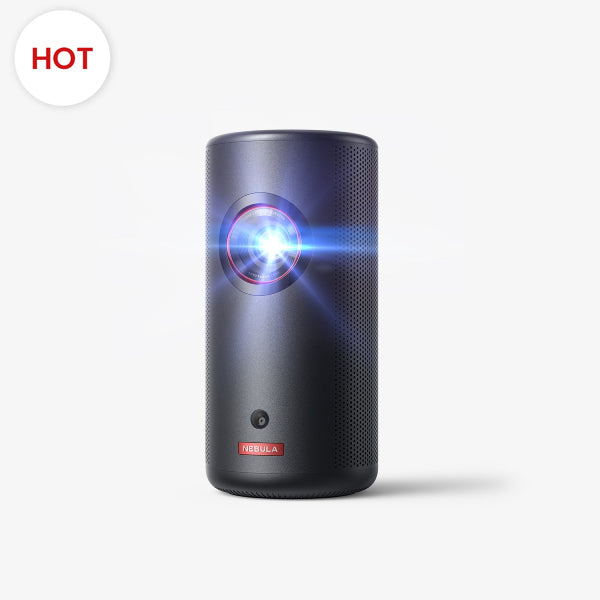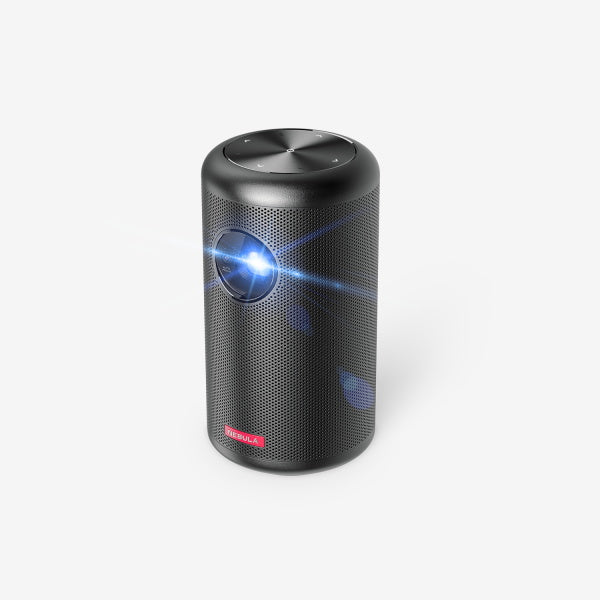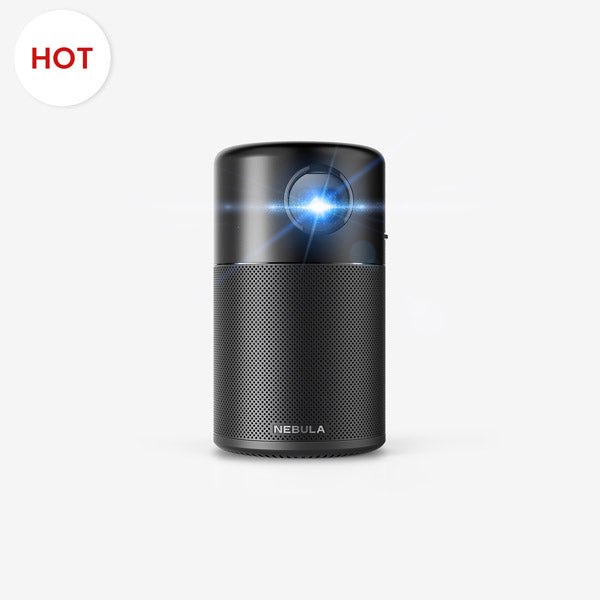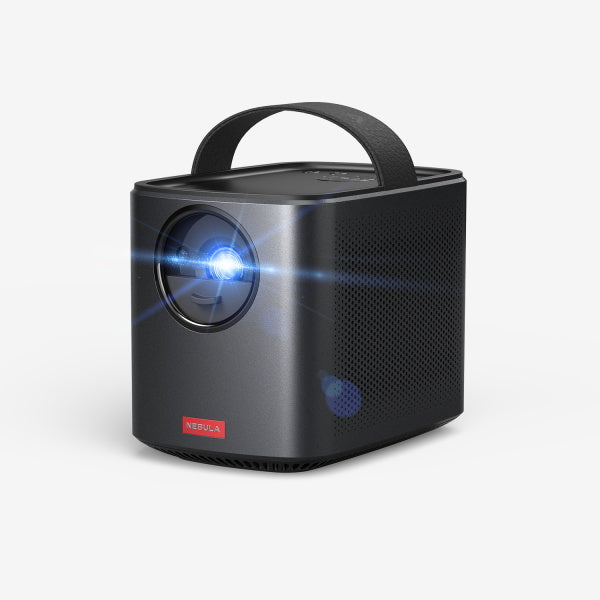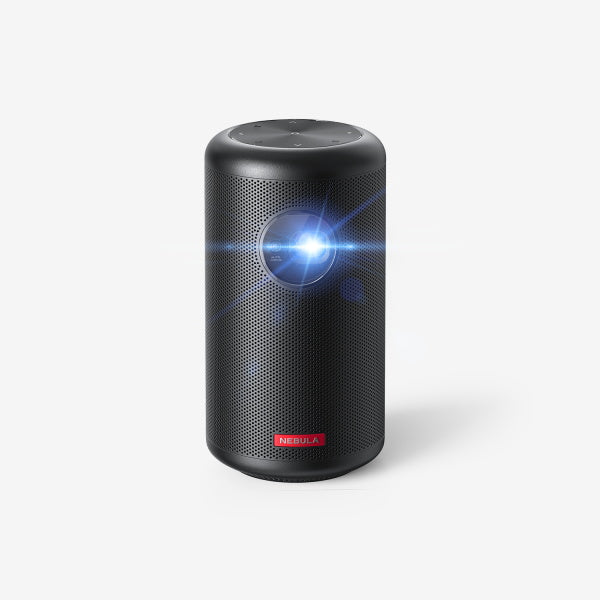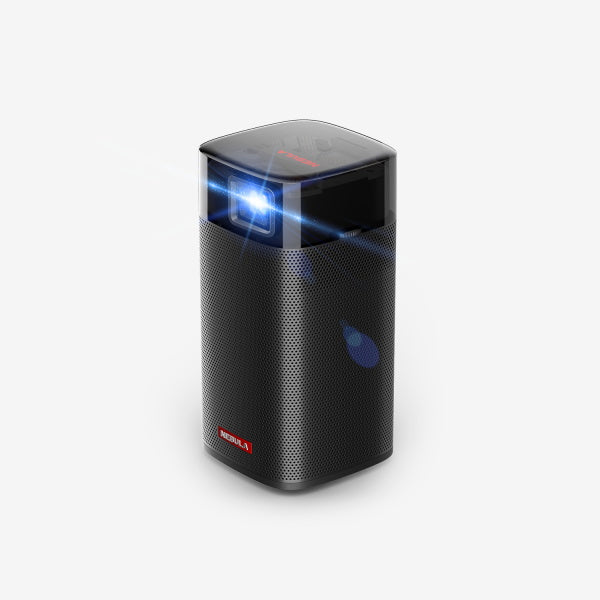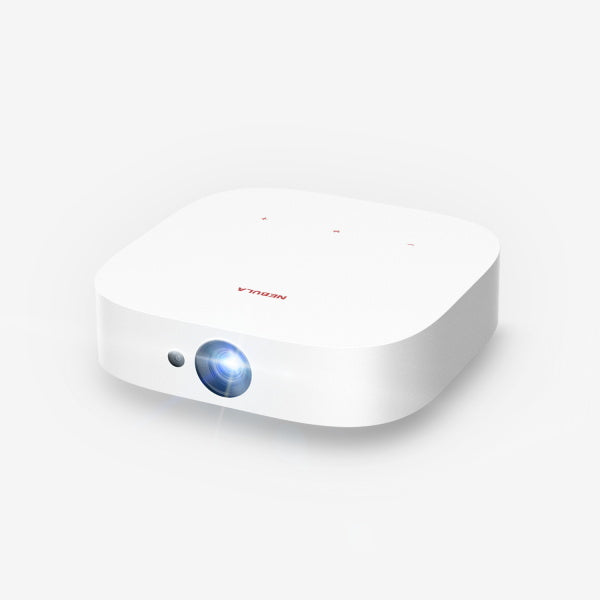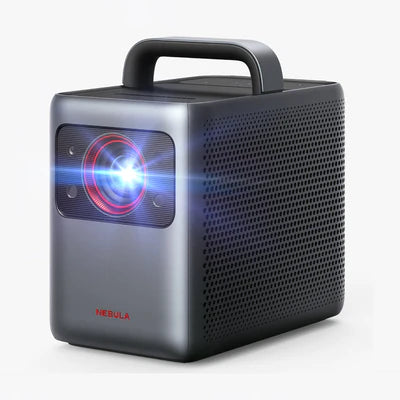Projectors are essential tools for a variety of applications, and choosing the right technology can greatly impact your viewing experience. When it comes to projectors, there are three main technologies to consider: lamp vs.LED vs.laser projectors.

Each of these technologies has its own set of advantages and disadvantages, making them suitable for different applications. In this section, we'll explore what each type of projector is, how it works, and the pros and cons associated with them.
What is a Lamp Projector
Lamp projectors have been a cornerstone of visual display technology for many years. They rely on a tried-and-true method of projection, using a high-intensity lamp as their primary light source.
On lamp vs.bulb questions, it is important to note that "Lamp" and "bulb" are terms that are often used interchangeably for Traditional projectors, often referred to as lamp projectors, which use high-intensity lamps or bulbs (typically metal halide or mercury vapor lamps) as their primary light source. These lamps through a bulb emit white light, which is then filtered and manipulated to produce images.
Lamp projectors operate by passing light through a miniature LCD (Liquid Crystal Display) or DLP (Digital Light Processing) chip, both of which are crucial components for image formation. Within these chips, there are millions of minuscule mirrors or liquid crystal cells that manipulate and modulate the light to create the image you see on the screen.
The lamp itself emits a powerful white light, which is then meticulously filtered through the chip to achieve the desired colors and hues. The resulting image is subsequently projected onto a screen or any suitable surface for viewing.
Prosof Lamp Projectors:
- Cost-Effective: One of the significant advantages of a lamp projector is that lamp’s affordability, especially in terms of the initial purchase cost, makes it accessible for various budgets.
- Brightness: Lamp projectors are renowned for their ability to produce exceptionally bright images. This feature makes them well-suited for large spaces and environments with ample ambient light.
- Good Color Accuracy: With proper calibration and settings, lamp projectors can deliver commendable color accuracy and image quality, ensuring that your presentations or cinematic experiences are visually engaging.
Cons of Lamp Projectors:
- Limited Lifespan: Perhaps the most significant drawback of lamp projectors is the finite lifespan of the lamp itself. Comparing laser projector vs.lamp, over time, the lamp's brightness degrades, and eventually, it will need to be replaced, which can result in ongoing costs.
- Maintenance Requirements: Lamp projectors demand regular maintenance, including tasks such as cleaning air filters and replacing lamps when they reach the end of their life cycle. These maintenance tasks can add to the total cost of ownership and downtime.
- Heat Generation: Lamp projectors generate a considerable amount of heat during operation. In smaller spaces or confined environments, this excess heat can be uncomfortable for both users and the projector itself, potentially impacting its overall lifespan.
What is a LED Projector

LED projectors represent a significant advancement in projection technology, offering numerous advantages over their traditional lamp-based counterparts. They have surged in popularity in recent years thanks to their energy-efficient operation and exceptionally long-lasting light source.
LED projectors operate by harnessing the power of Light Emitting Diodes (LEDs) as their primary light source. These tiny semiconductor devices emit vibrant red, green, and blue light. The key innovation lies in the combination of these primary colors to create a full spectrum of colors, enabling LED projectors to produce rich and dynamic images.
Similar to lamp projectors, LED projectors utilize an LCD (Liquid Crystal Display) or DLP (Digital Light Processing) chip to manipulate and modulate the light, resulting in the projection of vivid and detailed images onto a screen or any suitable surface.
Pros of LED Projectors:
- Longevity: LED projectors boast an outstanding lifespan, with LEDs often lasting up to 20,000 hours or more. This extended life significantly reduces maintenance requirements and the need for frequent lamp replacements, translating to long-term cost savings.
- Energy Efficiency:In choosing if LEDvs.lamp projector saves more energy, LEDs are energy-efficient, consuming significantly less power than lamp projectors. Their lower power consumption not only reduces electricity costs but also contributes to a more eco-friendly operation. LED generate less heat, creating a more comfortable viewing experience.
- Quick Startup and Shutdown: LED projectors offer the convenience of instant startup and shutdown. There is no need for the warm-up and cool-down periods typically associated with lamp projectors, allowing for more efficient use of your time and resources.
Cons of LED Projectors:
- Lower Brightness:LED projectors, while energy-efficient, are generally less bright compared to lamp or laser projectors. This lower brightness of may limit their suitability for environments with abundant ambient light.
- Color Accuracy: While many LED projectors offer commendable color accuracy, some may not match the color quality achieved by lamp or laser projectors. Users who require precise color representation for applications like professional photography or color-critical design may need to exercise caution in their choice.
In comparison of laser vs.LED projector, laser has a leverage on this matter.
- Initial Cost: LED projectors often come with a higher upfront cost compared to traditional lamp projectors. However, this initial investment is offset by long-term savings due to their extended lifespan and energy efficiency.
LED projectors have become a favored choice for those seeking a balance between performance and sustainability. Their remarkable longevity, energy efficiency, and quick operation make them suitable for various applications, particularly in settings where brightness requirements are not excessively high.
What is a Laser Projector
Laser projectors are a pinnacle of modern projection technology, renowned for their exceptional image quality and extended performance capabilities. They have gained widespread recognition and are favored for various applications due to their impressive longevity and consistently high-quality output.
Laser projectors like the Cosmos Laser 1080p distinguish themselves by harnessing the power of laser light sources to create images. Typically, these projectors utilize laser diodes in red, green, and blue, allowing for a precise control of color composition.
The laser beams are meticulously directed onto a specialized chip, either DLP (Digital Light Processing)orDMD (Digital Micromirror Device) panel, which plays a pivotal role in reflecting and modulating the incoming light. This intricate process results in the formation of exceptionally sharp and vibrant images.
Pros of Laser Projectors:
- Exceptional Lifespan: Laser projectors set the bar high when it comes to lifespan, often exceeding 20,000 hours of operation. This longevity, comparing projector laser vs.lamp, drastically reduces maintenance requirements and the need for costly lamp replacements, making them a cost-effective long-term solution.
- High Brightness: Laser projectors are celebrated for their ability to produce incredibly bright and vivid images. In comparing LED vs. laser, this feature makes them ideal for a wide range of applications, in large venues and outdoor projection where ambient light may be a challenge.
- Excellent Color Accuracy:& LED laser light projectors are synonymous with outstanding color accuracy and image quality. They excel in reproducing colors faithfully and are capable of rivaling or surpassing the performance of other projection technologies.
Cons of Laser Projectors:
- Higher Initial Cost:One notable drawback of laser projectors is their higher upfront cost compared to both LED andlamp projectors. However, this initial investment is often justified by their impressive performance and long-term reliability.
- Complex Maintenance: While laser projectors require less frequent maintenance compared to lamp projectors, servicing them can be more complex and costly due to the intricacies of their internal components.
- Potential for Eye Hazards:The intense laser light emitted by these projectors can pose a risk to eyes if mishandled or if the projector is damaged. It's essential to exercise caution and follow safety guidelines when operating laser projectors.
Laser projectors represent the pinnacle of projection technology, offering exceptional image quality, longevity, and brightness. In differentiating laser projector vs.LEDprojector, lasers are an excellent choice for applications where top-tier performance is required, even though their initial cost may be higher.
Users should be mindful of safety considerations and be prepared for potentially more involved maintenance procedures when opting for laser projectors.
Conclusion
In conclusion, the choice between lamp vs.LEDvs.laser projector depends on your specific needs and budget. LED projectors are ideal for those seeking a balance between performance and longevity, while lamp projectors can be a cost-effective option for less demanding scenarios. Ultimately, it's essential to consider factors like brightness, lifespan, and maintenance when making your decision.
Frequently Asked Questions about “lamp vs led vs laser projector”
Do laser projectors have lamps?
No, laser projectors do not have traditional lamps like lamp projectors. Instead, they use laser diodes as their light source. Laser diodes offer a longer lifespan and higher efficiency compared to traditional lamps. Laser projectors are known for their longevity and consistent performance, making them a popular choice for various applications.
Are laser projectors better?
Laser projectors are often considered superior to lamp and LED projectors in terms of image quality, color accuracy, and brightness. It's important to note that the superiority of laser projectors may vary depending on individual preferences, specific models, and use cases.








